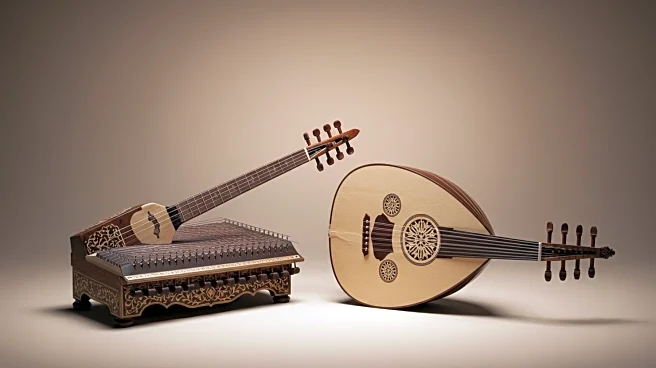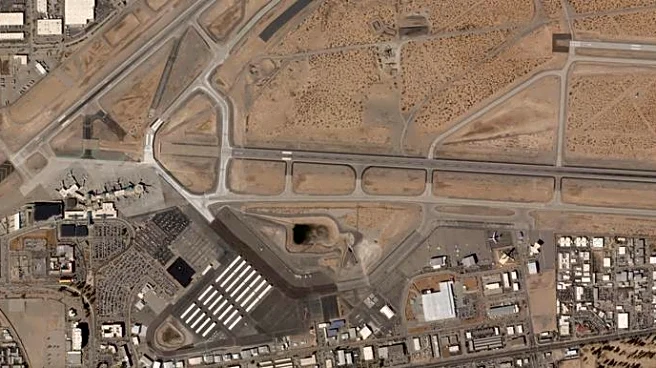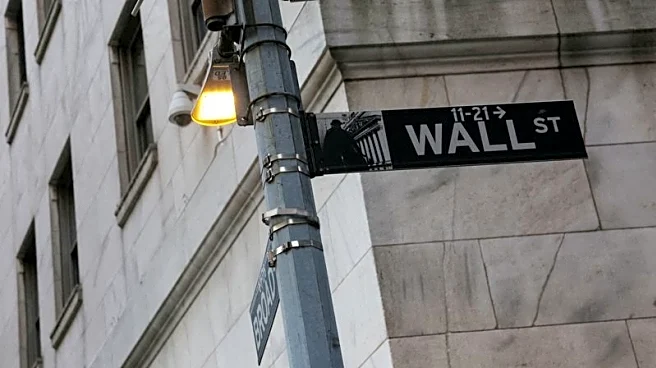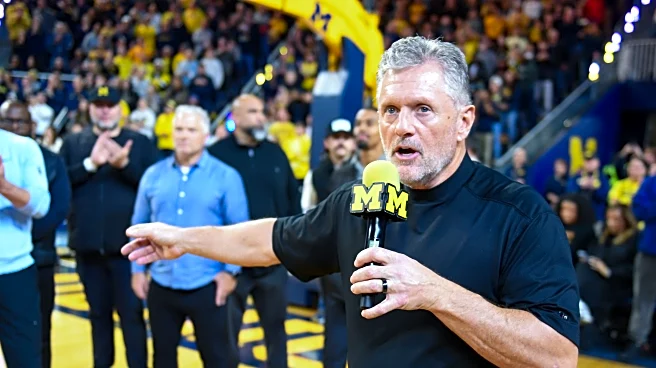What's Happening?
Amir Shahsar, an Iranian musician who fled Iran in 1989, has established himself in Israel, blending Persian, Jewish, and world music. Shahsar is a member of The Diwan Project, an ensemble that combines liturgical poetry, Yemenite singing, African rhythms, and original compositions for Jewish prayers. The group, founded in 2003, is set to perform at the Klezmer Festival in Safed. Shahsar's journey from Iran through Turkey to Israel was marked by cultural repression in Iran, leading him to seek refuge and musical opportunities elsewhere. In Israel, he has connected with musicians who share his passion for ethnically fused music, contributing to the evolution of contemporary Mizrahi music.
Why It's Important?
Shahsar's story highlights the cultural and musical fusion that can occur when diverse backgrounds intersect. His work with The Diwan Project enriches the Israeli music scene by incorporating elements from various traditions, fostering a deeper appreciation for multiculturalism. This fusion not only preserves ancient musical traditions but also innovates them, offering new expressions and experiences. Shahsar's journey underscores the resilience of artists in the face of political and cultural challenges, and his contributions to the world music scene in Israel demonstrate the potential for music to bridge cultural divides.
What's Next?
The Diwan Project's upcoming performance at the Klezmer Festival in Safed marks a continuation of their efforts to blend diverse musical traditions. As Shahsar collaborates with talented musicians, the ensemble is likely to further innovate and expand their repertoire, potentially influencing the broader Israeli music scene. The ongoing tensions in the region may impact cultural events, but Shahsar's focus on music as a form of spiritual and cultural expression suggests a commitment to artistic growth despite external challenges.
Beyond the Headlines
Shahsar's reflections on his journey and the cultural shifts in Iran offer insights into the broader implications of political and cultural repression. His avoidance of daily political distractions in favor of mythology, mysticism, and anthropology highlights the role of art in providing solace and preserving cultural heritage. The fusion of Persian, Jewish, and world music in his work serves as a testament to the enduring power of cultural exchange and the potential for music to transcend borders and foster understanding.










